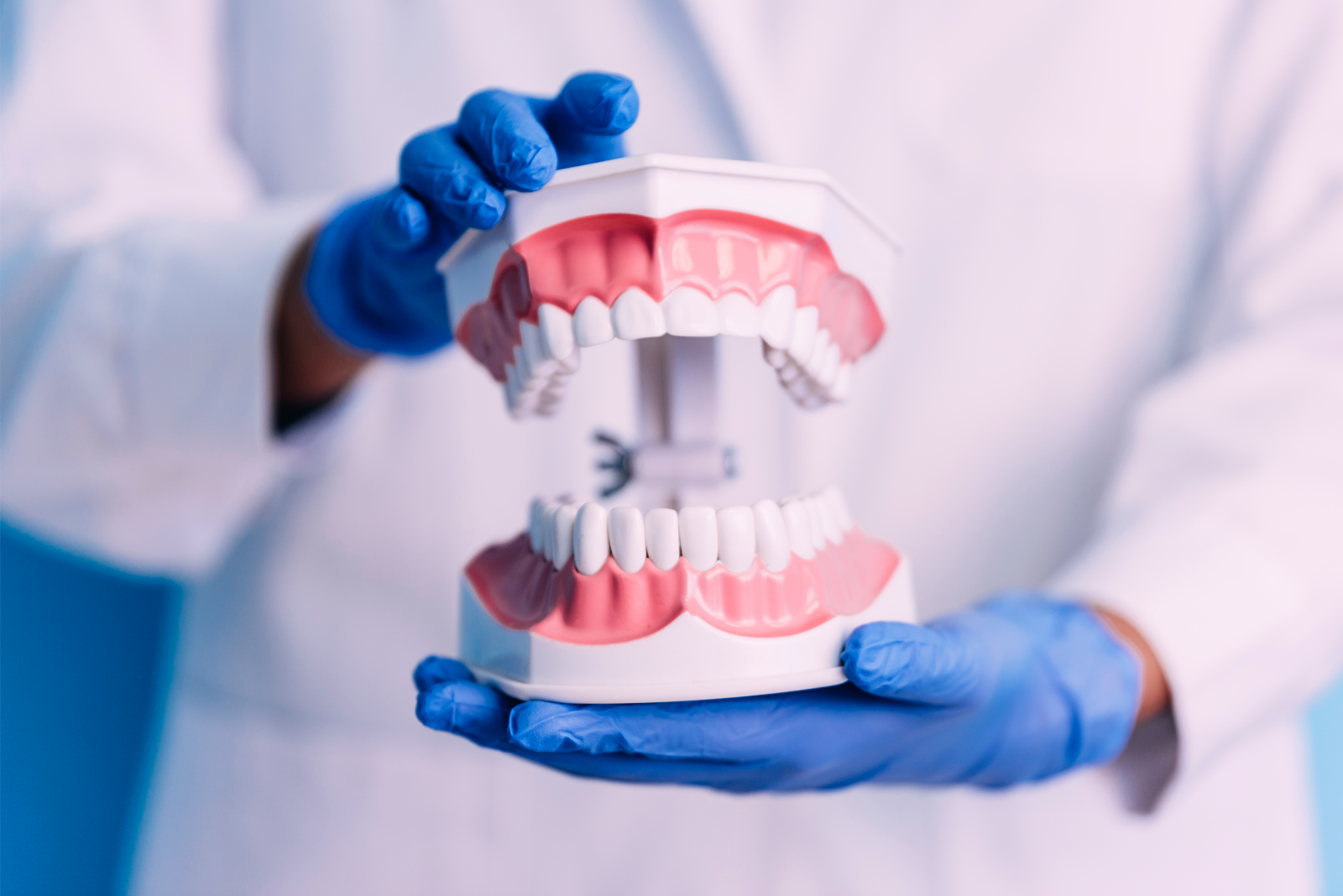Teeth look deceivingly simple from the outside, but the internal workings of our gnashers are more intricate than you’d imagine. You may think that our teeth are just made of bone, but that’s not the case. Our teeth actually have four separate parts that work together, creating the strength necessary to process the food that keeps us healthy. Today we take a deep dive and answer the question – what are teeth made of?
Teeth Are Not Made of Bone
Bone is made up of living tissue. Bone is built to be strong yet flexible enough to endure the stress we put on them each and every day. Bones are made of collagen and calcium phosphate. Our bones are alive, which means that if they are broken, they can repair themselves. Bones also have bone marrow, which is rich in blood vessels.
In contrast, our teeth are not living tissue. What you see is what you get. They do not break down and regenerate as our bones do. Instead, our teeth are made from four different types of tissue: enamel, dentin, pulp, and cementum. Let’s start from the inside and work our way out.
The Pulp
Consider the pulp as the heart of your tooth. It’s the soft center of your tooth, and it’s actually alive, containing all the nerves, blood vessels, and connective tissue your tooth needs to be healthy and strong. It feeds the layer above it (called dentin), which is responsible for giving teeth their natural color.
A tooth can survive without its pulp, but it will not survive if the pulp becomes infected. If you let a cavity go for too long without repair, it can cause bacteria to enter the pulp cavity and cause infection. If you have a toothache, you can bet that the heart of your tooth has become damaged by tooth decay. When you undergo a root canal, your dentist can draw out the infected pulp material, leaving the shell of your tooth intact.
Dentin
Dentin is the portion of your tooth that sits just underneath the enamel and makes up the largest part of the tooth. 70% of dentin is made up of inorganic matter, while the other 30% is organic matter (primarily calcium and phosphate ions) and water. The crystals that make up dentin are much smaller than those of enamel, which means it is much softer than enamel. Also, unlike enamel, dentin is living tissue, able to grow and repair itself if necessary. There are tubes that run down into the pulp, allowing it the resources it needs for regeneration.
The downside is that these tubes also contain nerves, which is why when the enamel wears away from the surface of your teeth, sensitivity to hot, cold, and sweet occurs. When you eat or drink, these substances can travel through the tubes into that sensitive heart of the tooth, which is the pain you feel when sensitivity becomes a problem.
Cementum
Cementum is a hard substance that connects to fibers that keep your tooth in place within the jawbone. It attaches the tooth root to the periodontal ligament, which keeps our teeth stable within the jaw. Cementum consists of two different categories – cellular and acellular. Cellular cementum contains collagen fibers and covers the bottom of the tooth root, while acellular cementum covers the area where the root of the tooth meets the crown. Both types are softer than enamel but harder than dentin.
Enamel
Now we have reached the enamel. Tooth enamel envelopes and protects the crown, which is the part of the tooth we can see and makes up our smile. Enamel is made up of many types of minerals that combine to make it the hardest substance in the human body. Healthy enamel is usually a shade of white that varies from light yellow to grayish-blue. Your tooth enamel is only about 2.5mm thick, yet it protects the fragile internal tissues that make up the rest of the tooth.
Teeth are Strong but Require Care
Enamel may be the hardest substance in our body, but that doesn’t mean it’s infallible. Acids and sugar from the foods we eat can eat through the enamel, causing sensitivity, cavities, and tooth decay. It’s why it’s so important that we take care to protect our teeth and maintain good oral health. Brushing, flossing, and visiting your dentist twice a year is the minimum you need to ensure your teeth and gums remain healthy. If you haven’t been to the dentist in a while, now might be a good time to schedule an appointment online!
Remember that we only get one set of teeth. Isn’t it amazing that the 32 adult teeth we are born with can last our entire lives with proper care?
